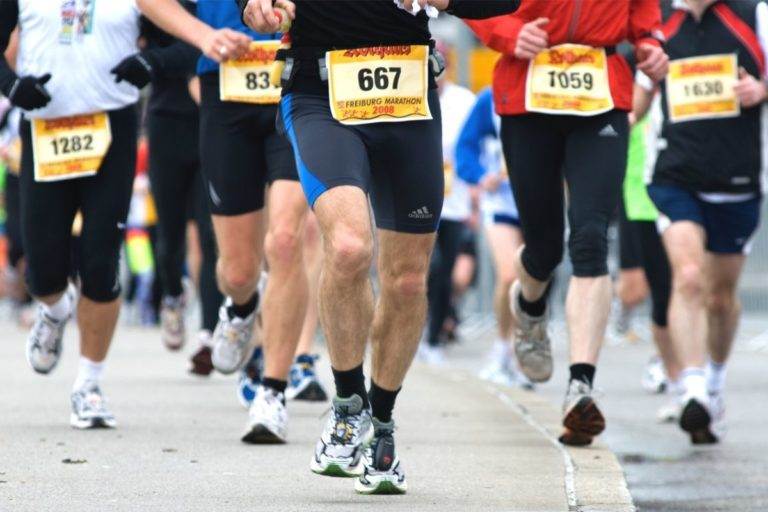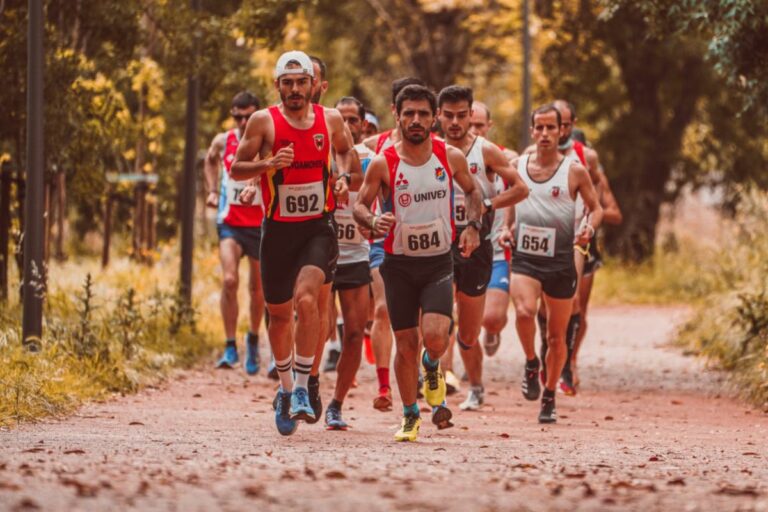How To Avoid Hitting The Wall In Your Next Marathon

Even with the best preparation, many runners experience hitting the wall during the marathon.
What is hitting the wall? Hitting the wall is a phenomenon where a runner feels a sudden and severe drop in energy levels and endurance, making it difficult to continue running.
This can be a very frustrating experience, but there are ways to prevent it.
If you’re wondering about how you can avoid hitting the wall, then you’ve arrived at the right place.
In this article, we will discuss five practical tips to avoid hitting the wall during your next marathon.
We’ve also made sure to include some additional information about why the wall happens and common ways this is tackled by runners.
5 Practical Tips For How To Avoid Hitting The Wall
1. Proper Nutrition And Hydration
Proper nutrition and hydration are crucial in preventing hitting the wall.
Make sure you consume enough carbohydrates before the race and stay hydrated throughout the marathon.
During the race, ensure to drink water, electrolyte drinks, or use sports gels to maintain your energy levels.
This also means watching your diet around a marathon.
You don’t want to eat some crazy unhealthy cheat meal the night before, as this is more likely to make you feel groggy and unprepared for the wall.
2. Manage Your Pace
Running at a gradual pace can help prevent hitting the wall. Avoid starting the race too fast and maintain a steady pace throughout.
If you are feeling good towards the end of the race, you can increase your pace.
Pacing is something that beginner runners struggle with, often starting too fast which can cause the wall to occur early.
This is something you will want to address in training. Understanding the way your body responds during the course of a marathon is a vital factor for success.
3. Proper Training
Proper training is key in preventing hitting the wall.
Make sure you are gradually increasing your mileage during training and practicing running at the same pace as the marathon.
Incorporate hill training, speed work, and long runs to improve your endurance.
4. Mental Preparation
Mental preparation is important in preventing hitting the wall.
Visualization has been used by athletes of all different kinds in order to prepare your mind for the difficulty to come.
This is also important during the marathon – visualize yourself finishing the race and focus on the present moment instead of thinking about how far you have to go.
Make sure to keep a positive attitude and trust in your training, but make sure to visualize what it will feel like when you hit the wall and have to truly test yourself.
Being prepared for a marathon can help you actually run it and make any type of wall feel a lot easier.
5. Rest And Recovery
Rest and recovery are crucial in preventing hitting the wall.
- Make sure you are getting enough sleep and allowing your body time to recover after long runs.
- Incorporate stretching and foam rolling to prevent injuries. It will improve your overall running experience.
The more rested you are, the less likely you are to encounter the wall, and the more likely you are to be able to deal with it even if you do.

What Is The Wall In Running?
The wall, also known as “hitting the wall,” is a phenomenon that many runners experience during a marathon.
- It typically occurs around 18-20 miles into the race, when a runner feels a sudden drop in energy levels and in their overall endurance.
- This can make it difficult to continue running and cause many runners to quit.
But at this point, you’re probably wondering what exactly happens in your body when you hit the wall.
- In short, the wall is a phenomenon that occurs due to a depletion of glycogen in the body, which is the primary source of energy for the muscles during exercise.
- The body stores glycogen in the liver and muscles, and when these stores become depleted, the body switches to burning fat as fuel.
However, burning fat is a less efficient process, and the body cannot maintain the same level of energy production, leading to fatigue and a drop in performance.
Additionally, it is thought that the brain also plays a role in hitting the wall.
As the body becomes fatigued, the brain perceives exercise as more difficult, leading to a reduction in motivation and a further decline in performance.
As mentioned before, proper mental preparation, including visualization, and focusing on the present moment, can help overcome this mental barrier and prevent hitting the wall during running.
Final Thoughts
Hitting the wall is a common experience for many runners during a marathon.
However, with proper nutrition, hydration, training, mental preparation, and rest, it can be mitigated or prevented.
Remember to pace yourself, fuel your body, and stay positive during the race. With these tips, you can avoid hitting the wall and enjoy a successful marathon.
We hope that this guide has helped you understand what the wall is, as well as some practical tips for how you can overcome it.
Best of luck on your marathon, we hope it’s the experience you were hoping for!
Frequently Asked Questions
What Is The Best Way To Fuel During A Marathon?
The best way to fuel during a marathon is to consume water, electrolyte drinks, or sports gels to maintain your energy levels.
Many runners will have people pass them drinks as and when they need them or carry one with them if they are very wary of their time limit.
Race Strategies
Review the course map, and check the locations of water stops, aid stations, and other facilities.
Use aid stations wisely and plan your pee breaks strategically. The first stations and toilets are usually the most crowded, but you can typically find less crowded areas along the route.
Prepare yourself for the race day excitement, as it might affect how your body reacts.
How Long Does It Take To Recover After Hitting The Wall?
It will usually take a few days to recover from hitting the wall during a marathon. Make sure you are getting enough rest and allowing your body time to recover.
A marathon is a big accomplishment, so don’t feel bad about taking a few days away from training once you reach the finish line.






